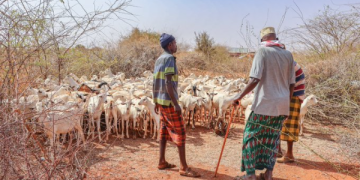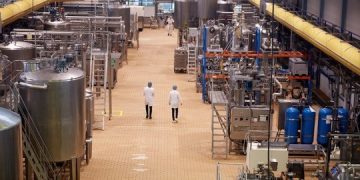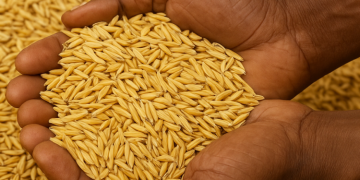The Minister for Food and Agriculture, Eric Opoku, has underscored the urgent need for Ghana to transition from subsistence farming to a dynamic and sustainable agri-food economy capable of competing globally and ensuring national food security.
Addressing the opening session of the 2025 Annual Conference of the Ghana Association of Agricultural Economists (GAAE) at the Kwame Nkrumah University of Science and Technology (KNUST), Kumasi, on Thursday, November 6, 2025, the Minister said this year’s theme, “Transforming Agri-Food Systems in Developing Economies through Sustainable Agribusiness Development,” reflects one of the biggest economic opportunities facing Ghana today.
He highlighted the central role agriculture continues to play in Ghana’s economy, contributing about 20 percent to national GDP and employing one-third of the workforce, with more than 70 percent of rural households depending on the sector for their livelihoods.
Despite this contribution, the Minister lamented persistent productivity challenges, rising food imports and significant post-harvest losses amounting to as much as 30 percent of output. Ghana’s food import bill currently exceeds US$3 billion annually, largely driven by rice, poultry and processed food importation.
“The challenge before us is not simply to produce more food, but to transform our entire agri-food system to ensure that the processes remain profitable, inclusive and environmentally responsible,” he emphasised.
Mr Opoku noted that Africa’s food and agribusiness market is projected to exceed US$1 trillion by 2030, an opportunity that can only be realised through strong value chains, innovation and investment in sustainable agribusiness.
Policy Direction
The Minister outlined two key government policies aimed at driving the transformation agenda: the Feed Ghana Policy and the 24-Hour Economy Policy.
The Feed Ghana Policy, he said, seeks to strengthen domestic food production through improved seed access, irrigation expansion, mechanisation, post-harvest infrastructure and agro-processing.
On the 24-Hour Economic initiative, the Minister said the initiative is designed to boost productivity by supporting continuous operations in food logistics, processing and storage to reduce delays, improve market efficiency and create more jobs.
Source: 3news.com
























































